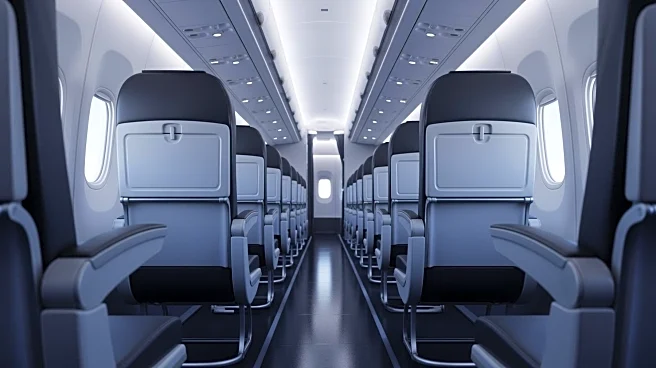What's Happening?
China Airlines recently marked a milestone by operating its first all-male crew flight from Taipei to New York. Historically, the airline had a policy limiting the number of male flight attendants per flight,
typically allowing only one or two. This policy was changed following efforts by the flight attendant union, which advocated for gender-neutral crew assignments. As a result, several male flight attendants with high seniority successfully bid on the same flight, creating an opportunity for an all-male crew. The flight attendants chose New York for its convenient crew hotel location and the opportunity for shared activities. The event was celebrated as a step towards breaking gender barriers in the profession.
Why It's Important?
The policy change at China Airlines represents a significant move towards gender equality in the workplace, particularly in industries where gender roles have traditionally been rigid. By allowing crew assignments to be gender-neutral, the airline is setting a precedent that could influence other carriers to adopt similar practices. This change not only promotes inclusivity but also enhances the work environment by allowing employees to work without gender-based restrictions. The successful execution of the all-male crew flight highlights the potential for more diverse and equitable staffing practices in the aviation industry, which could lead to broader societal shifts in gender perceptions.
What's Next?
Following this successful flight, China Airlines may continue to implement gender-neutral policies across its operations, potentially influencing other airlines to reconsider their crew assignment practices. The union's role in advocating for these changes could inspire similar movements in other sectors, promoting workplace equality. As gender barriers continue to be challenged, industries may see increased diversity in roles traditionally dominated by one gender. The airline's decision could also lead to further discussions on gender equality in aviation, encouraging more inclusive policies and practices.
Beyond the Headlines
The change in policy at China Airlines not only impacts the aviation industry but also reflects broader cultural shifts towards gender equality. By removing gender-based restrictions, the airline is contributing to a larger movement that challenges traditional gender roles and promotes inclusivity. This development may encourage other industries to evaluate their own practices and consider similar changes. The success of the all-male crew flight serves as a reminder of the importance of union advocacy in driving policy changes that benefit employees and promote equality.









